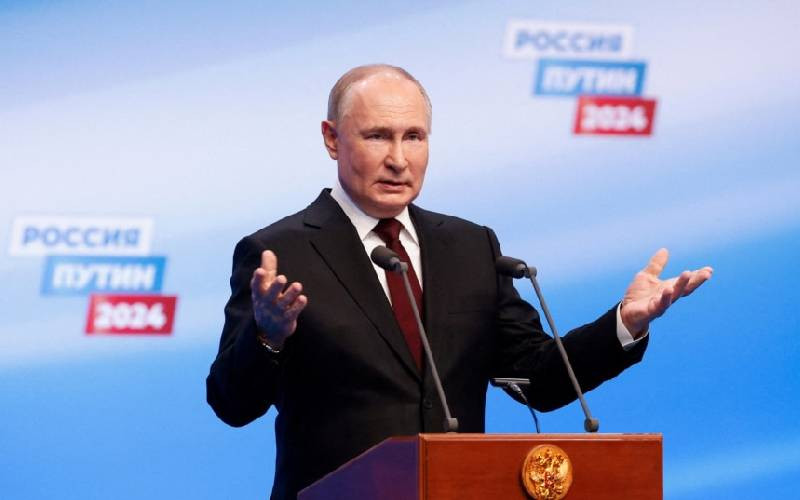×
The Standard e-Paper
Kenya’s Boldest Voice

Russian President Vladimir Putin celebrated winning a new six-year term after an election that gave voters no real alternatives due to the intimidation or jailing of most potential opponents.
Putin told supporters that he considered the election democratic and dismissed those who protested the vote.